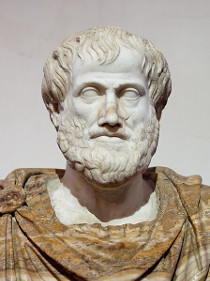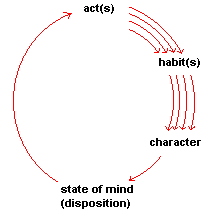|
|
|
||||||||||||||||||||||||||||||||||||||||||||||||||||||||||||||||||||||||||||||||||||||||||||||||||||||||||||||||||||||||||||||||||||||||||||||||||||||||||||||||||||||||||||||||||||||||||||||||||||||||||||||||||||||||||||||||||||||||||||||||||||||||||||||||||||||||||||||||||||||||||||||||||||||||||||||||||||||||||||||||||||||||||||||||||||||||||||||||||||||||||||||||||||||||||||||||||||||||||
|
|
|||||||||||||||||||||||||||||||||||||||||||||||||||||||||||||||||||||||||||||||||||||||||||||||||||||||||||||||||||||||||||||||||||||||||||||||||||||||||||||||||||||||||||||||||||||||||||||||||||||||||||||||||||||||||||||||||||||||||||||||||||||||||||||||||||||||||||||||||||||||||||||||||||||||||||||||||||||||||||||||||||||||||||||||||||||||||||||||||||||||||||||||||||||||||||||||||||||||||||
|
Ethics Homepage > Self-Interest > Aristotle |
|||||||||||||||||||||||||||||||||||||||||||||||||||||||||||||||||||||||||||||||||||||||||||||||||||||||||||||||||||||||||||||||||||||||||||||||||||||||||||||||||||||||||||||||||||||||||||||||||||||||||||||||||||||||||||||||||||||||||||||||||||||||||||||||||||||||||||||||||||||||||||||||||||||||||||||||||||||||||||||||||||||||||||||||||||||||||||||||||||||||||||||||||||||||||||||||||||||||||||
|
|
|||||||||||||||||||||||||||||||||||||||||||||||||||||||||||||||||||||||||||||||||||||||||||||||||||||||||||||||||||||||||||||||||||||||||||||||||||||||||||||||||||||||||||||||||||||||||||||||||||||||||||||||||||||||||||||||||||||||||||||||||||||||||||||||||||||||||||||||||||||||||||||||||||||||||||||||||||||||||||||||||||||||||||||||||||||||||||||||||||||||||||||||||||||||||||||||||||||||||||
|
|

Philosophy 302: Ethics |
||||||||||||||||||||||||||||||||||||||||||||||||||||||||||||||||||||||||||||||||||||||||||||||||||||||||||||||||||||||||||||||||||||||||||||||||||||||||||||||||||||||||||||||||||||||||||||||||||||||||||||||||||||||||||||||||||||||||||||||||||||||||||||||||||||||||||||||||||||||||||||||||||||||||||||||||||||||||||||||||||||||||||||||||||||||||||||||||||||||||||||||||||||||||||||||||||||||||||
|
I. With respect to the good, right, and happiness,
the good for Aristotle is not a disposition to act in a certain way.
The good involves a teleological system where living well and doing
well are the highest end of life: goods such as strength, wealth, and
friendships facilitate a well-lived life. |
|||||||||||||
|
|
A. For Aristotle the (highest) good is that to which
all things aim. Something is good if it performs its proper function.
E.g., a good coffee cup is good if it is made of good materials,
is of the right size and shape, retains heat, and is convenient in use,
and so forth. A good red oak tree is well shaped, is healthy, has good
soil and light, and so on.
|
||||||||||||
|
|
|
1. A right action is that which is conducive to the good, and different goods correspond to the differing sciences and arts. |
|||||||||||
|
|
|
2. "The good" or best good is that which
is desired for its own sake and for the sake which we desire all other
ends or goods. E.g. we desire friends not as something good in
itself but as something to help facilitate eudaemonia. |
|||||||||||
|
|
B. The good of human beings cannot be answered
with the exactitude of a mathematical problem since mathematics
starts with general principles and argues to conclusions.
|
||||||||||||
|
|
|
1. Ethics starts with our actual moral judgments prior to our ability to formulate of general principles. |
|||||||||||
|
|
|
2. Aristotle presupposes people have a natural tendency
to seek what they think is good or beneficial. |
|||||||||||
|
|
C. Aristotle distinguishes between happiness
(eudaemonia) and moral virtue: |
||||||||||||
|
|
|
1. Moral virtue is not the end of life, for some morally virtuous persons are inactive, miserable and unhappy. |
|||||||||||
|
|
|
2. Happiness, the end of life and that to which all
persons aim, is activity in accordance with reason. |
|||||||||||
|
|
|
|
a. Happiness is an activity involving both moral and intellectual arete. |
||||||||||
|
|
|
|
b. Some external goods, such as friendship,
sufficient wealth, and sufficient influence, are necessary in
order to exercise that activity. |
||||||||||
|
II. The Good Character. |
|||||||||||||
|
|
A. People have a natural capacity for good
character, and it is developed through practice. The capacity
does not come first — it's developed through practice.
|
||||||||||||
|
|
|||||||||||||
| 1. The sequence of character development in human behavior raises the question of which is preeminent — acts or dispositions. Their interaction is elucidated by Aristotle's distinction between acts which create good dispositions and acts which flow from the good disposition once good character has been created. | |||||||||||||
| 2. Arete is a disposition developed out of a capacity by the proper exercise of that capacity. | |||||||||||||
|
|
|
3. Habits are developed through acting; a person's
character is the structure of habits formed by what we do.
|
|||||||||||
|
|
B. Virtue, arete, or excellence is defined
as a mean between two extremes of excess and defect with respect to a
feeling or action as the practically wise person would determine it.
This mean cannot be calculated a priori. |
||||||||||||
|
|
|
1. The mean is relative to the individual and
the individual's circumstances. For example, consider the following
traits: |
|||||||||||
|
|
|
|
Defect |
Mean |
Excess |
|
|
|
|||||
|
|
|
|
cowardliness |
courage |
rashness |
|
|
|
|||||
|
|
|
|
humility |
pride |
vanity |
|
|
|
|||||
|
|
|
|
frugal |
giving |
liberal |
|
|
|
|||||
|
|
|
2. The level of courage necessary is different for a philosophy student, a commando, and a systems programmer. |
|||||||||||
|
|
|
3. Phronesis or practical wisdom is the ability to see the right thing to do in the circumstances. Notice, especially here, Aristotle's theory does not imply ethical relativism because of the appropriate standards human action in accordance with the appropriate mean for that person in that situation. |
|||||||||||
|
|
|
4. In the ontological
dimension of virtue as a factual instance, virtue is a mean; in the axiological
dimension of virtue as a value, it is an extreme or an excellence.
|
|||||||||||
|
|
|
5.Some presumptively virtuous behaviors can be an
extreme as when, for example, the medieval philosopher Peter
Abélard explains:
|
|||||||||||
|
|
|
6. Hartmann's Diagram:  The diagram illustrates virtue considered in its ontological dimension
as a mean and virtue in the axiological dimension as an extreme or
an excellence. [Nicolai Hartmann, Ethik
(Berlin: W. de Gruyter, 1926), 401.]
The diagram illustrates virtue considered in its ontological dimension
as a mean and virtue in the axiological dimension as an extreme or
an excellence. [Nicolai Hartmann, Ethik
(Berlin: W. de Gruyter, 1926), 401.] |
|||||||||||
|
|
|
7. Pleasure and pain are powerful determinants of
our actions. |
|||||||||||
|
III. Pleasure is the natural accompaniment of unimpeded activity. Pleasure, as such, is neither good nor bad. |
|||||||||||||
|
|
A. Even so, pleasure is something positive when its effect is to perfect the exercise of activity. Everything from playing chess to making love is improved with skill. |
||||||||||||
|
|
B. Pleasure cannot be directly sought — it is the side-product of activity. Pleasure is only one element in the development of happiness. |
||||||||||||
|
|
C. The good person, the one who has attained
eudaemonia, is the standard by which pleasant or unpleasant
is known. (For more on Aristotle's view of pleasure, see Aristotle on Pleasure on this website.)
|
||||||||||||
|
IV. Friendship: a person's relationship to a friend is the same as the relation to oneself, according to Aristotle. A good friend is thought of as a second self. |
|||||||||||||
|
|
A. In friendship a person loves himself not as someone seeking wealth for himself, but as someone who gives his money away to receive honor. |
||||||||||||
|
|
B. Aristotle distinguishes three kinds of friendship: |
||||||||||||
|
|
|
1. Utility: friendships of worthwhile mutual benefit in accomplishment |
|||||||||||
|
|
|
2. Pleasure: friendships of contentment, gratification, and mutual while having a good time together. |
|||||||||||
|
|
|
3. The Good: friendships of virtue and character who
flourish together — a friendship which endures as long as both retain
their character. |
|||||||||||
|
V. The Contemplative Faculty — the exercise of perfect happiness in intellectual or philosophic activity. |
|||||||||||||
|
|
A. Reason is the highest faculty of human beings. We can engage in it longer than other activities. |
||||||||||||
|
|
B. Contemplation is the highest part of our self and form of activity. Philosophy is loved as an end-in-itself, and consequently Aristotle implies the realization of eudaemonia (or happiness) requires leisure and self-sufficiency as an environment for contemplation. |
||||||||||||
Recommended Sources
Quiz
on Aristotle's Ethics: Aristotle's ethical theory reviewed in
true/false questions.
Quiz
on the Doctrine of the Mean: A short quiz on Aristotle's Doctrine of
the Mean from Introduction to Philosophy.
Aristotle's
Ethics: An excellent discussion from the Stanford
Encyclopedia of Philosophy of Aristotle's ethics drawn from the Nicomachean
Ethics and the Eudemian Ethics by Richard Kraut.
Send corrections or suggestions to
webmaster@philosophy.lander.edu |
![]()
![]()


